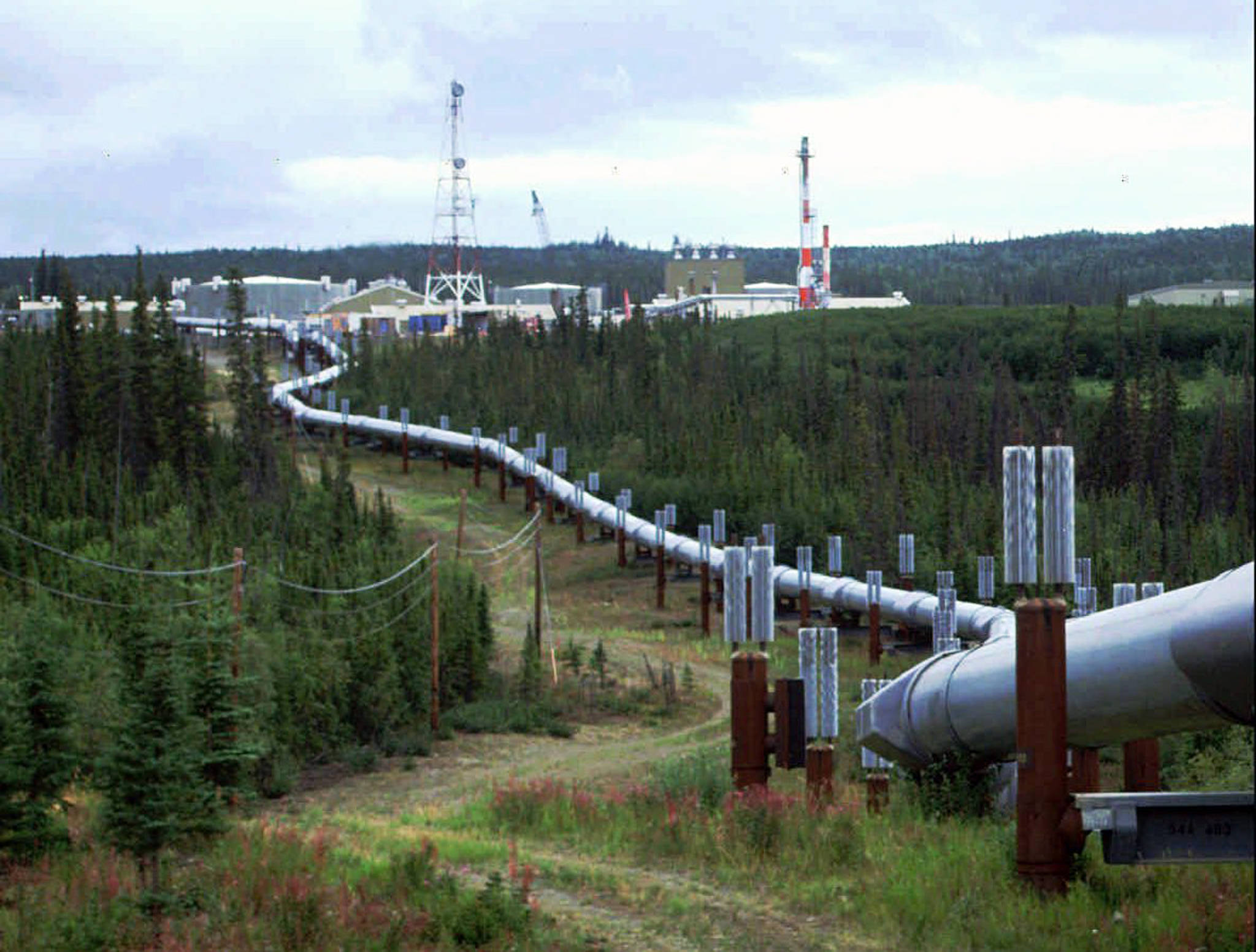By BECKY BOHRER
Associated Press
Alaska has no income or statewide sales taxes, and it cuts residents a check every year from its oil wealth.
But the future of that unique payout is in question amid low oil prices and an economy battered by the coronavirus pandemic. The size of the check — expected to be about $1,000 this year — has become a political battle in a state that already struggled to pay its bills.
Many of Alaska’s 730,000 people see the money as a right. For some, the checks go toward vacations, vehicles or college savings. For others, they’re a key part of their income, especially in rural areas where staples such as milk, soup or laundry detergent have to be flown or shipped in and can come with luxury price tags.
Without sharper budget cuts, new revenue from taxes or other measures, “it’s a very real possibility” the program “would either completely or very substantially go away,” economist Gunnar Knapp said.
Fights over the size of the payout have distracted lawmakers, said Mark Desinger of Anchorage, a retired oil pipeline worker.
In “the rest of the nation … people pay taxes to their government and the government provides some kind of services, and I think that we should do the same,” he said.
A massive state with fewer people than Seattle, Alaska isn’t the only energy-dependent place reeling from low prices and demand for fuel on top of the pandemic’s fallout. In Wyoming, another sparsely populated state, lawmakers used savings to help cover costs amid low gas prices and slumping coal production but still face school-funding deficits. In Louisiana, which had surpluses after years of budget problems, economists have warned the hit could be worse than during Hurricane Katrina and the recovery even slower.
But no other state gives residents an annual check like Alaska, whose fortunes have been inextricably linked to oil.
In 1976, less than 20 years after statehood and shortly before oil began flowing through the trans-Alaska pipeline, voters approved a constitutional amendment creating a nest-egg oil wealth fund. With investments, the fund is now valued around $60 billion, though it’s largely constitutionally protected. Earnings, traditionally used to pay the checks, is the portion that’s easy to spend.
Leslie Dodge, who lives outside Anchorage in Big Lake, said the state should live within its means, even if that means larger budget cuts. She said she supported Republican Gov. Mike Dunleavy’s push for deeper budget cuts last year. Outrage over the proposed cuts helped fuel an ongoing effort to recall Dunleavy.
Dodge says the oil checks are “the people’s money” and the public should be able to vote on any changes to the program.
The state, which for years built feast-or-famine budgets, is at a crossroads. Oil revenue used for the budget fell from $8.9 billion in 2012 to $2 billion in the last fiscal year, with the state projecting it will drop to around $720 million next year. Oil prices, in the $70-a-barrel range this time last year, have fallen below $30 a barrel.
The state has hit a point “predicted by everybody,” said Pat Pitney, Legislative Finance Division director.
The oil fund’s market performance determined the size of the checks for decades. In 2016, then-Gov. Bill Walker roughly halved the amount available for checks, which the courts allowed. Since then, the payout has become politicized.
It’s angered some, while others say they would give up some of the money for state services.
Sara Dykstra of Anchorage said she and her husband haven’t had to rely on the oil money, but she knows others do. She said the state should diversify its economy.
“We’ve got to get a side job, Alaska,” Dykstra said.
The state faces an estimated $970 million shortfall for the coming year. Lawmakers have been using savings and oil fund earnings to fill the gaps, and some worry taking too much from earnings could threaten the fund itself.
If oil prices stay below $35 a barrel, Rep. Zack Fields, an Anchorage Democrat, sees no checks “in the foreseeable future, period. There’s no way around that, unless you want to burn our state to the ground in the next five years to pay a short-term dividend.”
Lawmakers have passed a budget, but proposed revenue generators — a state lottery, a $30 tax on wages — stalled. Some lawmakers question adding taxes as many Alaskans and businesses struggle.
Republican Sen. Mike Shower said the state faces painful decisions but that should not justify ending oil checks. He said the government needs to cut more and he wouldn’t consider any taxes without tightening spending limits.
Knapp, the economist, wonders how Alaska’s troubles sound to other states.
“If you go and you say … things are so bad that next year the government might stop sending out money to people in the state and they might even ask us to pay taxes. And other people will go: ‘Excuse me, what’s your problem?’” he said.
• This is an Associated Press report.

